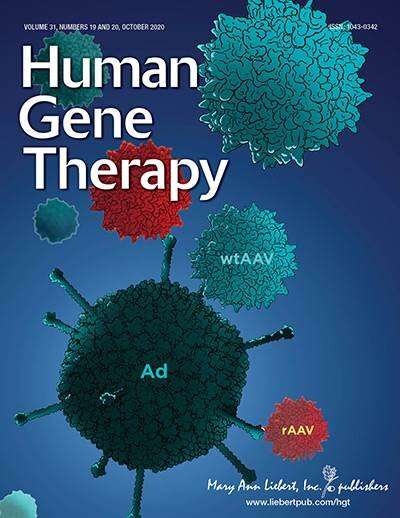Credit: Mary Ann Liebert, Inc., Publishers
New data highlight safety concerns for the replication of recombinant adeno-associated viral (rAAV) vectors commonly used in gene therapy. These findings, which emphasize the need for mobilization resistant AAV vectors, are reported in the peer-reviewed journal Human Gene Therapy.
The risk of rAAV mobilization has been underappreciated in the AAV research community.
"The data generated herein highlight the potential of rAAV vector production in treated patients upon subsequent wtAAV and helper virus infection," state Matthew Hirsch, Ph.D., University of North Carolina at Chapel Hill, and coauthors. "They raise safety concerns for the treated individual and for the unintended animal and human populations in general."
"Viral gene therapy vectors are, by their nature, viruses capable of replicating as viruses under certain conditions. These studies help to define the conditions under which that might occur in patients receiving rAAV vectors," says editor in chief of Human Gene Therapy, Terence R. Flotte, MD.
More information: Liujiang Song et al. Adeno-Associated Virus Vector Mobilization, Risk Versus Reality, Human Gene Therapy (2020). DOI: 10.1089/hum.2020.118
Journal information: Human Gene Therapy
Provided by Mary Ann Liebert, Inc






















